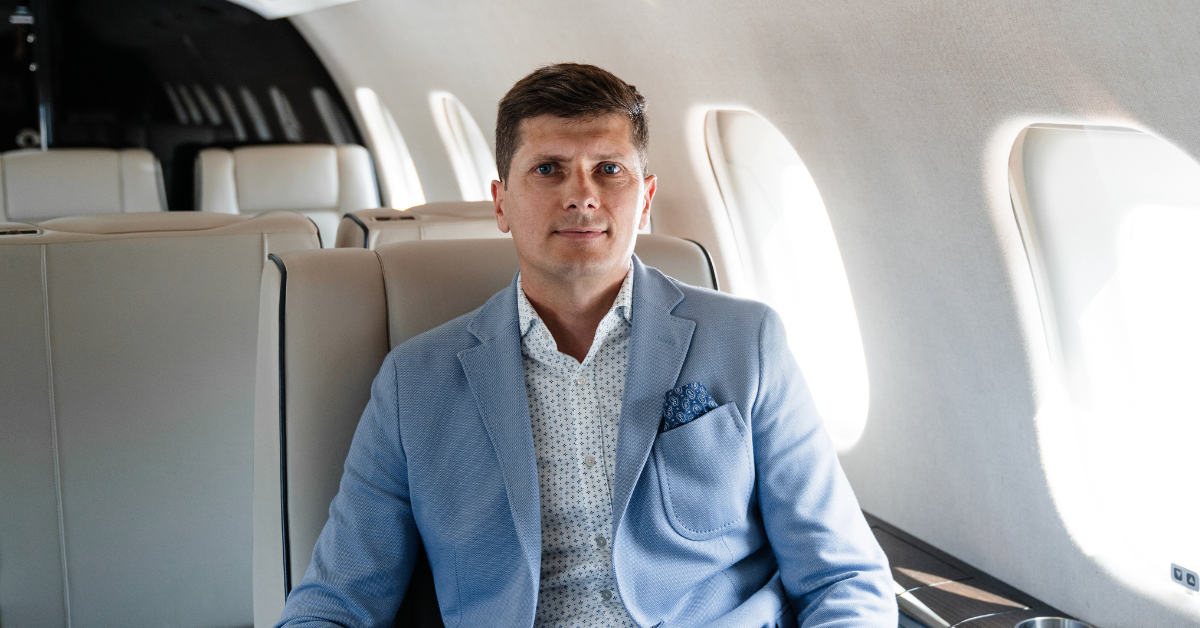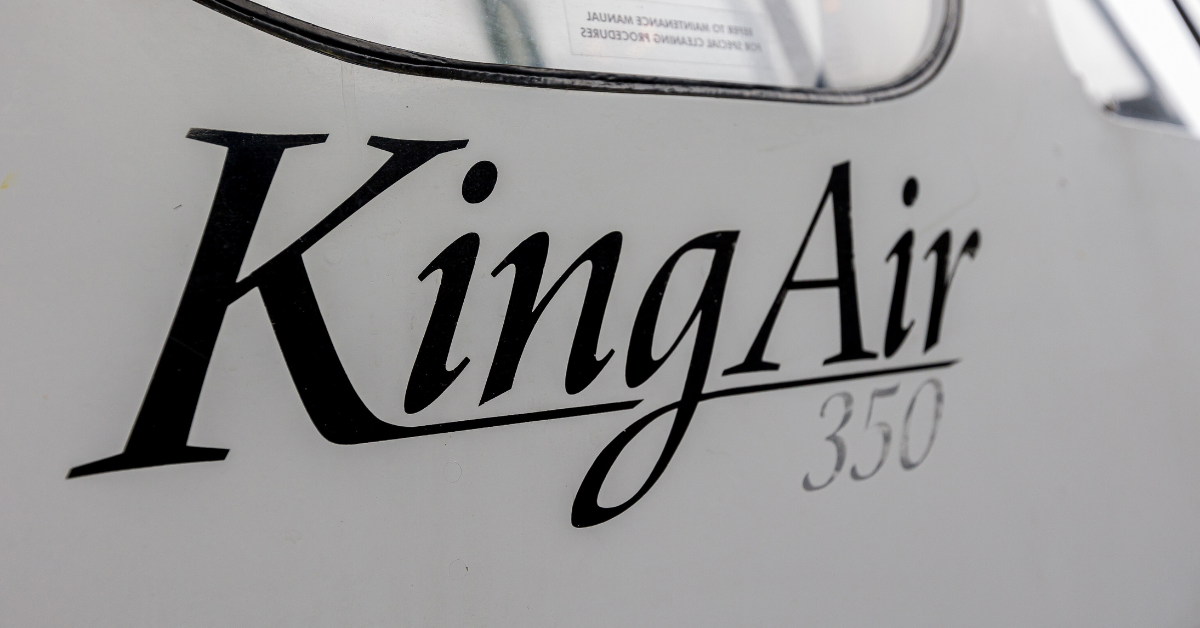The King Air 350 continues to prove why it’s one of the most trusted turboprops on the market
This month, Jetron closed the sale of a 2001 Beechcraft King Air 350 — an aircraft that found its new home in the United States. To share what made this project special, we spoke with the two people at the center of the transaction: Jakub Lenár, who led the deal as Aircraft Sales & Acquisition Manager, and Marián Jančařik, our Managing Director.
Below is a short look behind the scenes of this sale — from market insights to the specifics of completing an aircraft transaction from the EU to the U.S.

- What was the initial level of interest in this aircraft?
During the first few weeks of our marketing campaign, we received an immense number of inquiries from prospects around the world, showing a very high initial level of interest in the aircraft. King Airs are among the most popular turboprop aircraft, especially in the U.S. market.
- What made this King Air 350 stand out, and how did you market it?
The aircraft recently underwent a complete avionics upgrade to the Garmin G1000 NXi suite. It was delivered to its new owner with brand-new Blackhawk PT6A-67A engines enrolled in the ESP Gold Program and new five-blade composite MT propellers.
The aircraft was meticulously maintained and featured numerous upgrades, including an Avcon aft camera port for aerial survey and photogrammetry, a cabin noise-reduction system, Raisbeck lockers, and many others.
We highlighted these premium upgrades in our marketing campaign, which helped the aircraft stand out among other available units at that time.

- Was the sale challenging? What steps helped make the process smooth?
Every transaction presents its own challenges and brings a number of minor obstacles that need to be addressed throughout the process. In this case, one of the main challenges was to understand and correctly assess the impact of current U.S. tariffs to ensure the transaction was safe for both the seller and the buyer.
Careful planning and attention to detail — making sure that even small issues were properly addressed — helped make the entire process smooth.
- How is selling to the US different from selling in Europe? (certification, escrow, title search, logistics, FAA vs EASA)
Selling to the U.S. differs mainly in regulatory and procedural aspects. Aircraft must comply with FAA, not only EASA, standards. Transactions typically involve escrow services, title searches, and FAA registration to ensure a secure transfer of ownership. Additionally, export logistics and customs procedures require extra coordination compared to sales within Europe.
- What do you enjoy most about aircraft brokerage?
What I enjoy most about aircraft brokerage is the dynamic nature of each transaction. Every deal is unique, with different aircraft, clients, and challenges. Not every transaction goes smoothly, but overcoming those obstacles and finding solutions is deeply rewarding. The combination of aviation expertise, business strategy, and personal relationships makes the work both exciting and fulfilling.

- What is the hardest part of the business?
The hardest part of the business is managing the many variables that can affect a transaction, such as technical inspections, financing, regulatory requirements, and logistics. Each deal involves multiple parties and international procedures, which makes clear communication and coordination essential. Balancing all these factors while keeping both buyer and seller satisfied is often the greatest challenge.

- Are transactions between the EU and the US becoming more common?
Yes — cross-border aircraft deals are increasing as global demand normalizes and inventory shifts across regions. U.S. buyers often find strong value in well-maintained European aircraft, while European owners benefit from the liquidity of the U.S. market.
- Why is the King Air 350 still so popular?
The King Air 350 remains a favorite for its proven reliability, operating efficiency, and ability to access shorter runways where many jets can’t. Its spacious cabin and versatility suit both business and special-mission operations.

- What trends do you see for turboprops in 2026?
Turboprops are expected to stay strong as operators prioritize efficiency and flexibility over pure speed. Upgraded avionics, cabin refurbishments, and sustainability improvements will drive demand for modernized aircraft. As jet prices remain high and new deliveries delayed, well-equipped pre-owned turboprops will gain even more appeal.
- What advice would you give to buyers considering an aircraft now?
Define your mission clearly — range, payload, and operating region determine the right aircraft type. Prioritize aircraft with solid maintenance history, updated avionics, and good documentation, especially for cross-border deals. With inventories shifting, acting decisively on quality opportunities can secure long-term value.
The King Air 350 continues to prove why it’s one of the most trusted turboprops on the market — and this deal showed how strong international demand remains. Selling from the EU to the U.S. requires preparation, coordination, and transparency, and that’s exactly where dedicated processes and experienced people make the difference.
If you’re considering selling or acquiring an aircraft, the Jetron team is here to help.

Ako sa rok 2026 v privátnych lietadlách začal hýbať
Globálny referenčný bod kvality a výkonu
Ako sa minulý rok hýbalo súkromné letectvo nad Európou